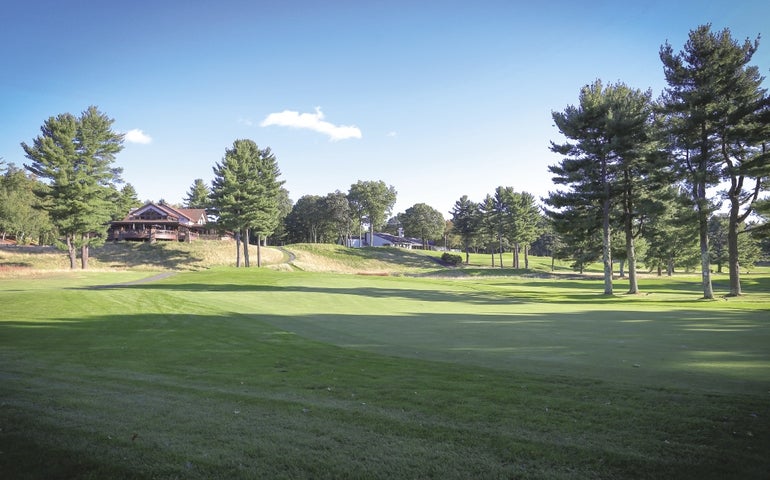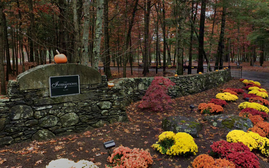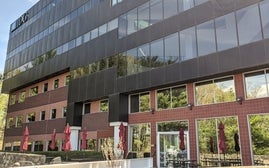Businesses change their golfing habits
 Photo | Courtesy | Joe Santa Maria, Kill the Ball Media
The International in Bolton
Photo | Courtesy | Joe Santa Maria, Kill the Ball Media
The International in Bolton
Back in the 1990s, big companies would spend a considerable amount of money on corporate golf outings. Some would hold four or five events a year, bringing clients and employees together for some informal fun that may or may not have led to business deals.
But things have changed, Central Massachusetts golf course owners said. Businesses are more frugal when it comes to corporate events, and people seem to be less willing to spend hours a day sealing a deal on the course. This has forced course owners to come up with alternate solutions when it comes to attracting potential clients.
“The key difference is for a lot of golf courses we are all working harder to generate the same revenue we used to generate 10 or 15 years ago,” said Dave Frem, president of the New England Golf Course Owners Association and general manager of Cyprian Keyes Golf Club in Boylston.
Corporate differences
In the '90s, during the dot-com bubble, there was a lot of excess, said Tim Gordon, president of Niblick Golf, a course operator that manages the Hopkinton Country Club in Hopkinton, Shining Rock Golf Club in Northbridge and Glen Ellen Country Club in Millis. Then, after the recession, frugality became first a necessity and then the cool thing to do.
“Corporations are much more concerned about the way things look,” Gordon said. “If it looks overly wasteful to spend money on their customers, they shy away from it.”
In the early 2000s, Gordon said there was a surge of business coming from the nonprofit world, and a portion of the corporate business has started to come back in the last year or so.
Cyprian Keyes has seen similar patterns. About 65 to 70 percent of its golf outings now come from nonprofits, said Jamie Parks, the club's sales and marketing manager. These events, especially those held in memory of someone recently deceased, are different than regular golf outings because they fill up completely, even in their first year.
“We have trouble fitting everybody because if it was such a young person who died, people are so passionate about it,” Parks said.
On the corporate side, businesses that hold events at Cyprian Keyes spend 20 to 30 percent less than they used to, Parks said. To make up for a drop in golf outings, Cyprian Keyes has seen an uptick in corporate meetings, which don't include golf.
The club also gets a lot of requests for weekend events, which it can't accommodate because that is when the majority of its members want to play golf.
One consistency at Cyprian Keyes is rounds of golf played by its corporate members. The club has 14 corporate members, who pay a fee to get vouchers to take clients out for a round. Those people have used the course at the same rate consistently over the past five or six years, Parks said.
The National Golf Foundation reported a net loss of about 149 golf courses in 2015. Most of those closures were at daily fee, lower-priced and 9-hole courses. In a statement on the NGF's website, chief business officer Greg Nathan said this is largely due to overbuilding that happened in the two decades leading up to 2006.
“We expect the walk back toward equilibrium to remain slow and continue for several more years,” Nathan said.
Bigger picture focus
Gordon tracks trends at his three courses for his own purposes. One of the things he is interested in is seeing what kinds of households are most likely to play golf, compared to people who might want to join a country club.
Clients have become less focused on just the golf and more focused on the other aspects of clubs, Gordon said.
“What we understand is that there are more people that want to belong to a club for other reasons than to play golf,” he said. “It's the club as a whole – it's the idea of a place where you can bring your family and have your own private place, and that has value.”
This is also true at the private Worcester Country Club. Over the past two years, the number of people with a purely social membership – which grants access to all of the club's amenities excluding golf – has increased 25 percent. Golf membership recently surpassed pre-recession levels, said general manager Bill Shaw.
One of the keys to staying afloat during tough times was offering a wider variety of entertainment catering to non-golfers, Frem said. For example, some courses offer customized packages and alternate on-course activities, including foot golf, where players try to get a soccer ball in the hole as quickly as possible, as well as three- and six-hole rounds of regular golf. Upon request, businesses can also have pros on hand to show non-golfers some quick pointers. Cyprian Keyes tries to stay ahead of the curve, Frem said.
“Customization and being creative and be willing to find something unique to make the outing people happy to come to your facility is important,” he said.
In the end, it's all about the customer experience, Gordon said.
“It's the experience economy,” he said.













0 Comments